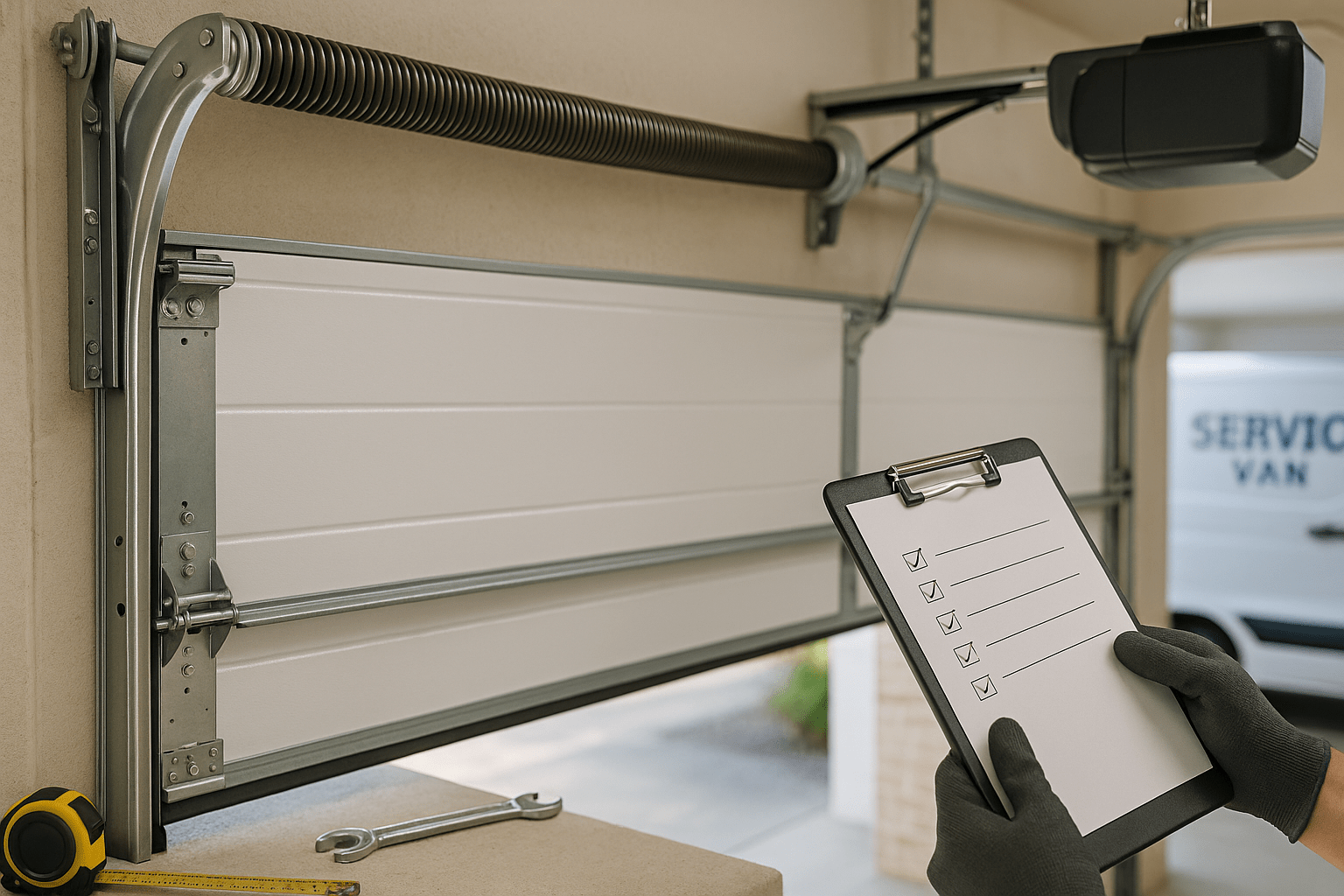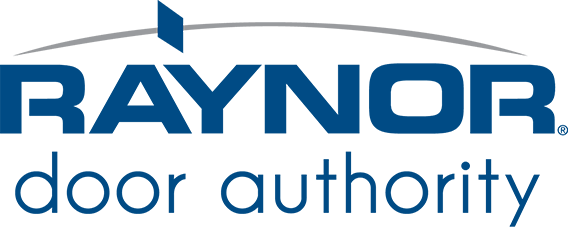10 Questions to Ask Any Garage Door Company Before You Buy

Key Takeaways
1. When buying a new garage door, consider material durability, insulation needs, garage door design style, and opener compatibility.
2. A garage door is a critical part of your home’s security features, efficiency, and resale value. Choosing wisely now can save you on costly repairs or upgrades later.
3. Raynor Door Authority helps you compare styles, repair services, and materials to ensure expert installation and reliable support.
Critical Questions To Ask a Garage Door Company
Choosing a good garage door company is pivotal in finding the perfect garage door for your property. A good garage door company can bring you the perfect balance of safety, style, and convenience.
We’ll walk you through 10 questions to ask a garage door company before hiring a garage door company so that you can make an informed, confident decision.
1. What’s Your Experience Level?
Before you let anyone near your garage door system, pause and ask: Do they know what they’re doing?
Garage doors might look simple from the outside, but there is a network of tension-loaded springs, precision tracks, motors, and sensors. One wrong adjustment from an inexperienced technician can throw the entire system off balance or worse, damage it beyond repair.
So, how do you avoid that scenario? Start by asking about their experience, like how long they’ve been in business. After all, you’re handing them a system that can weigh a few hundred pounds and plays a critical role in your home’s security.
Not sure what kind of door issues indicate poor workmanship? Raynor breaks down Garage door panel damage, so you know when to repair vs. replace.
2. Do You Offer Inspections First?
Before any tools come out or repairs begin, a proper inspection is the smart starting point. A qualified garage door professional should be willing to visit your home and conduct a complete assessment of the door’s condition.
Some of the garage door problems found during a proper inspection include:
- Spring wear and tension problems
- Roller and track alignment
- Cable and hardware condition
- Weather seal effectiveness
- Door balance and safety systems
A trustworthy technician won’t jump to conclusions or push unnecessary fixes. Instead, they’ll walk you through their findings, explain what’s working, what’s not, and what your options are.
If they can’t diagnose the issue or, worse, skip the inspection altogether, that’s a red flag. You’re hiring them for their expertise, and that starts with understanding the door before making changes to it.
3. What Accreditations or Certifications Do They Have?
When dealing with garage doors, especially American-made systems with specific safety and performance standards, it is essential to consider these factors. You’ll want to know that the technician is properly qualified.
Look for certifications from recognized garage door industry bodies like the IDEA (Institute of Door Dealer Education and Accreditation) or DASMA (Door & Access Systems Manufacturers Association).
These indicate that the authorized dealer has been trained to handle installations and repairs in line with U.S. safety codes. If you’re a commercial property manager, check out fire code & compliance.
Raynor Door is ranked as an IDA Top 100 Door Dealer, honored with the Distinguished Service Award, A+ BBB Ratings, and Factory Authorization & Industry Accreditation. These credentials speak volumes when you’re choosing a garage door company you can trust.
4. Have You Been Advised To Visit the Company’s and Manufacturer’s Website?
Before committing to an insulated garage door installation, take a few minutes to check both the installer’s and the manufacturer’s websites. It might sound basic, but it can tell you a lot.
- Do they list certifications?
- Are there customer reviews, a proven track record, good quality of service policies, and warranty information?
- Does their site reflect professionalism and transparency for your garage door needs?
Sometimes installers may give you verbal assurances or shortcuts that don’t actually line up with what the manufacturer recommends. For instance, a high-quality door could be undermined by improper mounting or skipping necessary safety components.
Hence, visiting the manufacturer’s site also helps you confirm information about material specs, wind ratings (especially important in areas prone to hurricanes or high winds), insulation values (for temperature control), and proper installation procedures. If something your garage door installer says seems off, cross-check with the manufacturer for clarity.
5. What Garage Door Services Do You Provide?
This might seem like a basic question, but it can reveal a lot about a company’s capabilities and how well they fit your needs. Different companies specialize only in residential doors, while others focus on commercial properties. Some only handle installations, while others offer full-spectrum quality services, including repairs, tune-ups, or emergency services at any time.
For instance
- Do they install both sectional and roll-up doors?
- Do they handle smart garage door opener installations and Wi-Fi integrations?
- Can they service older models or quality garage doors from discontinued brands?
You also want to know if they offer
- Preventative maintenance plans (which help spot issues early)
- 24/7 emergency support (because commercial garage door breakdowns don’t wait for business hours)
- Custom solutions for unique setups like high-lift doors or doors built for hurricane zones
6. Does the Company Comply With All Regulations?
When you are planning to buy from a garage door company, you’re trusting them with heavy-duty mechanical equipment that affects your safety, security, and even energy efficiency. That’s why it matters a lot whether they follow all the relevant federal, state, and local regulations.
For starters, look for compliance with building codes specific to your area. This ensures the installation won’t run into legal trouble down the road (like during home inspections or resale). It also shows they take their craft seriously, not cutting corners just to get the job done faster or cheaper.
Look for evidence that their technicians are trained in OSHA safety standards, especially when handling tension-loaded broken springs or lifting doors that weigh hundreds of pounds.
The same goes for environmental compliance: Are they disposing of old materials and lubricants in line with EPA guidelines? Do they avoid using banned or harmful substances like certain refrigerants or lead-based paints?
A reputable company won’t hesitate to tell you how they stay current with regulations. They’ll probably mention their licenses, permits, insurance coverage, and technician training upfront.
7. What Kind of Mounting Hardware Will Be Used?
It’s easy to get caught up in the door style, color choice, or insulation, but the real backbone of a reliable garage door is the mounting hardware.
A good installer will be upfront about the grade and material of the hardware they use. Ask if the mounting hardware is galvanized (to prevent rust), whether the hinges are heavy-duty steel, and if the rollers are nylon (which are quieter and longer-lasting than metal).
You can even ask if the hardware meets ANSI or DASMA standards. These are signs the installer takes your door’s durability and your safety hazards seriously.
8. How Long Should Your Garage Door Last?
In general, a well-built garage door should last 15 to 30 years, but that range depends on more than just the sticker on the box. Key factors like how often the door is used, the severity of your climate, and whether it’s been serviced regularly all play into its longevity.
If your garage is your main entry point, which is common in many American homes, your door might go up and down four to six times a day, resulting in over 1,500 cycles a year. Over time, that daily wear affects the springs, rollers, and cables. With no maintenance, a 15-year door may only last 10.
Let’s not forget about garage door openers. These usually last 10 to 15 years, depending on the door’s weight, the motor type, and how well it’s been lubricated and maintained. If your opener starts struggling before the door does, it’s often a sign the system as a whole needs a once-over.
9. Is the Garage Door Company Insured?
Before someone comes to install or repair a few-hundred-pound moving door on your home, there’s one thing you should always ask: Are you insured?
It might sound like a formality, but it’s far from it. A professional garage door company should carry both liability insurance and workers’ compensation coverage.
If the company doesn’t have proper insurance, you could be held legally responsible for their medical expenses or even sued for damages. It’s a nightmare scenario no homeowner wants to deal with.
A reputable company with a majority of customer satisfaction won’t hesitate to show you its insurance certificate. Most keep it handy because they expect discerning homeowners like you to ask. If you get excuses, delays, or vague answers, it’s a red flag.
Ask about what the licensing and insurance cover. Some subcontractors may not be included in the repair company’s policy, which creates a loophole you don’t want.
10. Have You Received Any Guarantees or Warranties?
Any reputable garage door company should provide a written warranty that covers both parts and labor. Why written? Because handshakes and verbal assurances fade quickly when something breaks, but paperwork does not lie.
Most garage door manufacturers offer warranties on their products, typically ranging from 3 to 10 years, depending on the materials used (steel doors usually carry longer warranties than wood).
Look for specifics:
- Does the warranty cover spring systems, which are the most likely components to fail?
- Is labor included, or would you have to pay out of pocket if a part fails within the warranty period?
- How long is the quality workmanship guaranteed? (A solid company will offer at least a one-year labor guarantee.)
Also, ask about what voids the warranty. Some companies might slip in clauses like “only valid if maintenance is done every 6 months,” so it’s worth knowing upfront what you’re agreeing to.
Prep Tips for Comparing Garage Door Companies
Before you start calling up garage door companies for quotes or consultations, a little preparation can go a long way. This will help you ask the right questions and compare the best options with confidence. Here is what you need to do before that:
1. Know Your Door’s Basic Specs
Start by gathering the essentials:
- What are the dimensions of your garage door opening?
- Is it a single or double door?
- Do you want it insulated?
These details affect both the type of door you can install and the price range you’ll fall into. Most standard garage doors are 8×7 ft (single) or 16×7 ft (double), but smart homes can vary widely.
2. Define Your Style & Material Preferences
- Do you want a traditional raised-panel steel door?
- A modern full-view glass model?
- Or something with woodgrain finishes that complement your exterior?
Know various styles and direction, home’s curb appeal, and this will help companies show you relevant samples instead of generic options. Also, different materials serve different purposes. Steel is durable and low-maintenance, while wood offers a high-end look with more upkeep.
3. Identify Your Priorities: Budget, Noise, Insulation, or Safety Features
Be clear about what matters most to you. For example:
- Live near a busy street? Focus on insulation and soundproofing (R-value matters).
- Want to control the door remotely? Ask about smart openers compatible with Wi-Fi or home assistants like Alexa or Google Home.
- Tight budget? Ask about good-value doors with basic warranties and transparent pricing.
4. Ask for Product Samples and Case Studies
A reputable company should have brochures, material swatches, or real customer installation photos to show you.
Some offer showroom visits or virtual previews. This helps you visualize what you’re getting.
5. Check Compatibility With Your Existing Setup
If you’re not replacing the entire system, check whether your current opener, track, or hardware is compatible with the new door. A good company will assess this during the estimate and flag anything that needs updating.
6. Prepare Questions for the Installer
Once you’ve collected the above details, come prepared with smart questions:
- How long have you worked with this door brand?
- What’s included in the installation price?
- Do you offer maintenance service packages or post-installation support?
Having this prep work done makes your conversations more productive. And when you finally start comparing quotes or proposals, you’ll have the clarity to spot who’s offering real value vs. who’s cutting corners.
Reliable Garage Door Solutions Begin With Raynor Door Authority
During garage door contractor selection, the stakes are higher than most people realize. When you ask the right questions, you gain a clearer view into a company’s professionalism, years of experience, and credibility. It helps you separate the truly dependable experts from those who may cut corners or disappear after installation.
But even after the questions are asked and the decision is made, the real test is in how the company shows up when you need them most.
Raynor Door Authority, with its service-first approach, is backed by 24/7 emergency availability, highly trained technicians, and hands-on experience in both residential and commercial door systems.
- 24/7 emergency repairs. Raynor technicians are available around the clock to get your modern garage door back in working order.
- Expert installation and maintenance. Raynor ensures safe, precise installs and proactive servicing from insulated residential doors to heavy-duty commercial roll-ups.
- Long-term support. With locations across the U.S. and Canada, you get personalized service, quick response times, and a team that knows your region’s needs.
So if you’re looking for a company that answers your questions and your calls, Raynor Door Authority is worth a conversation.
Contact Raynor Door Authority to schedule your service or get an expert opinion.
FAQs





